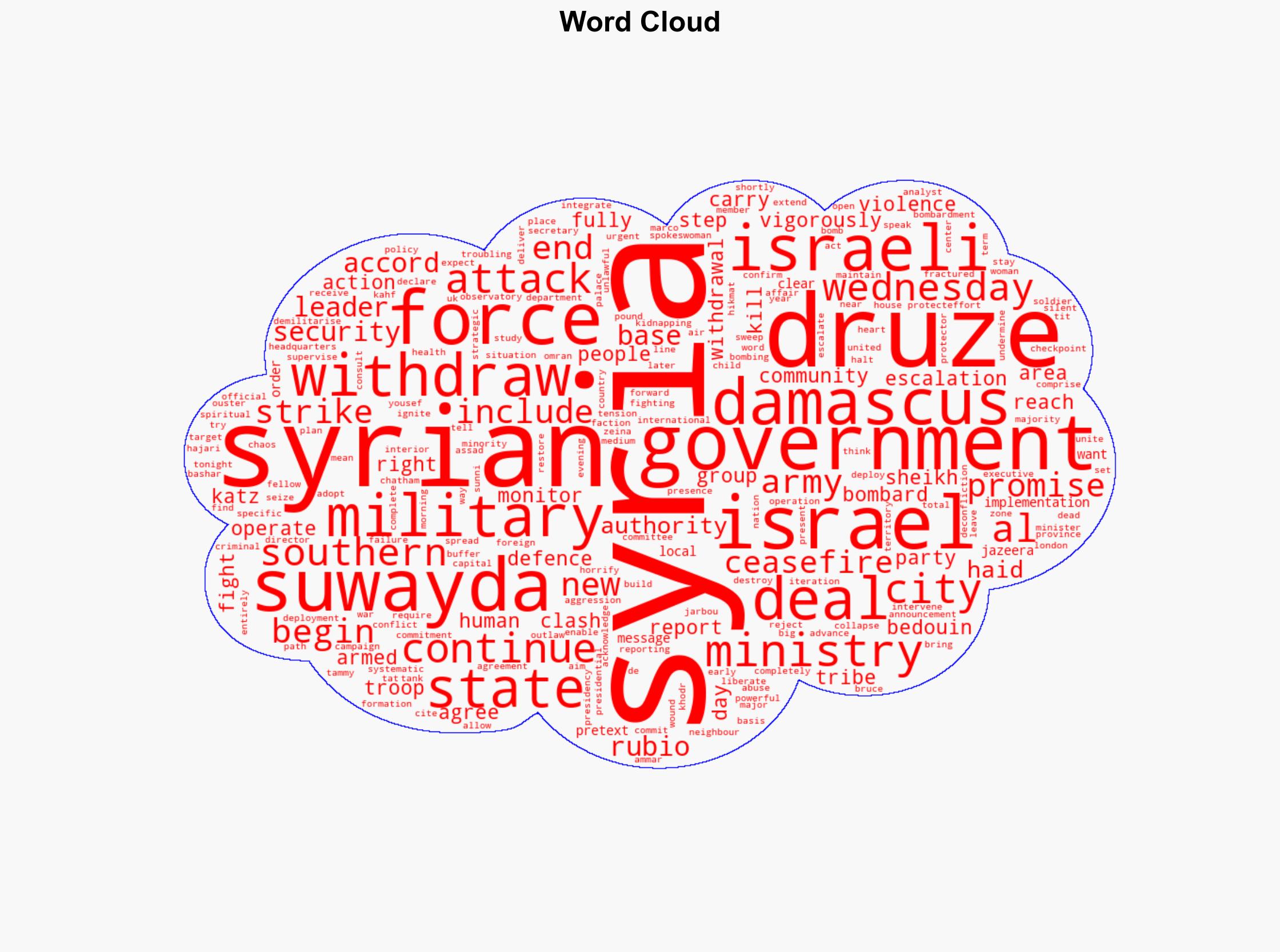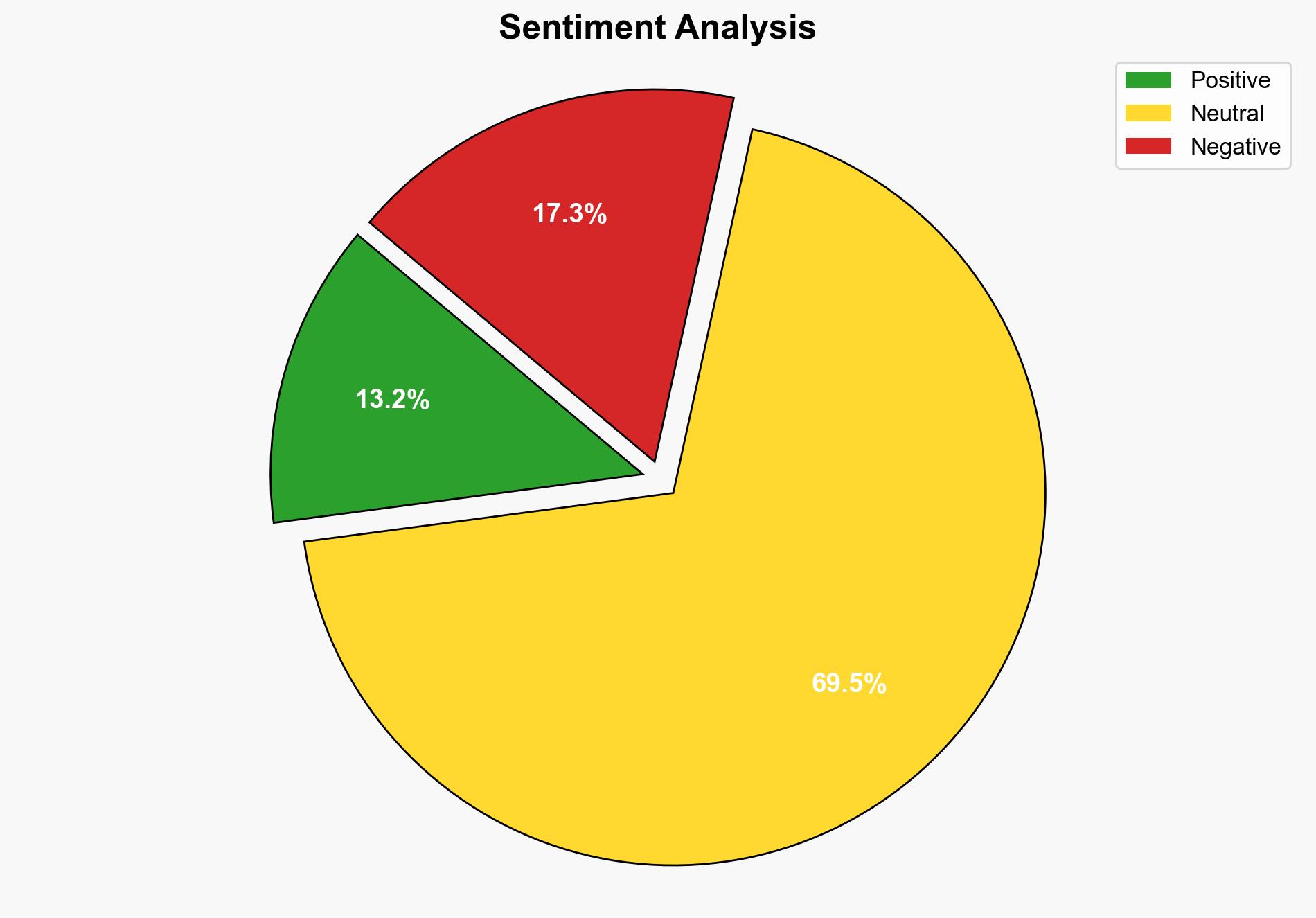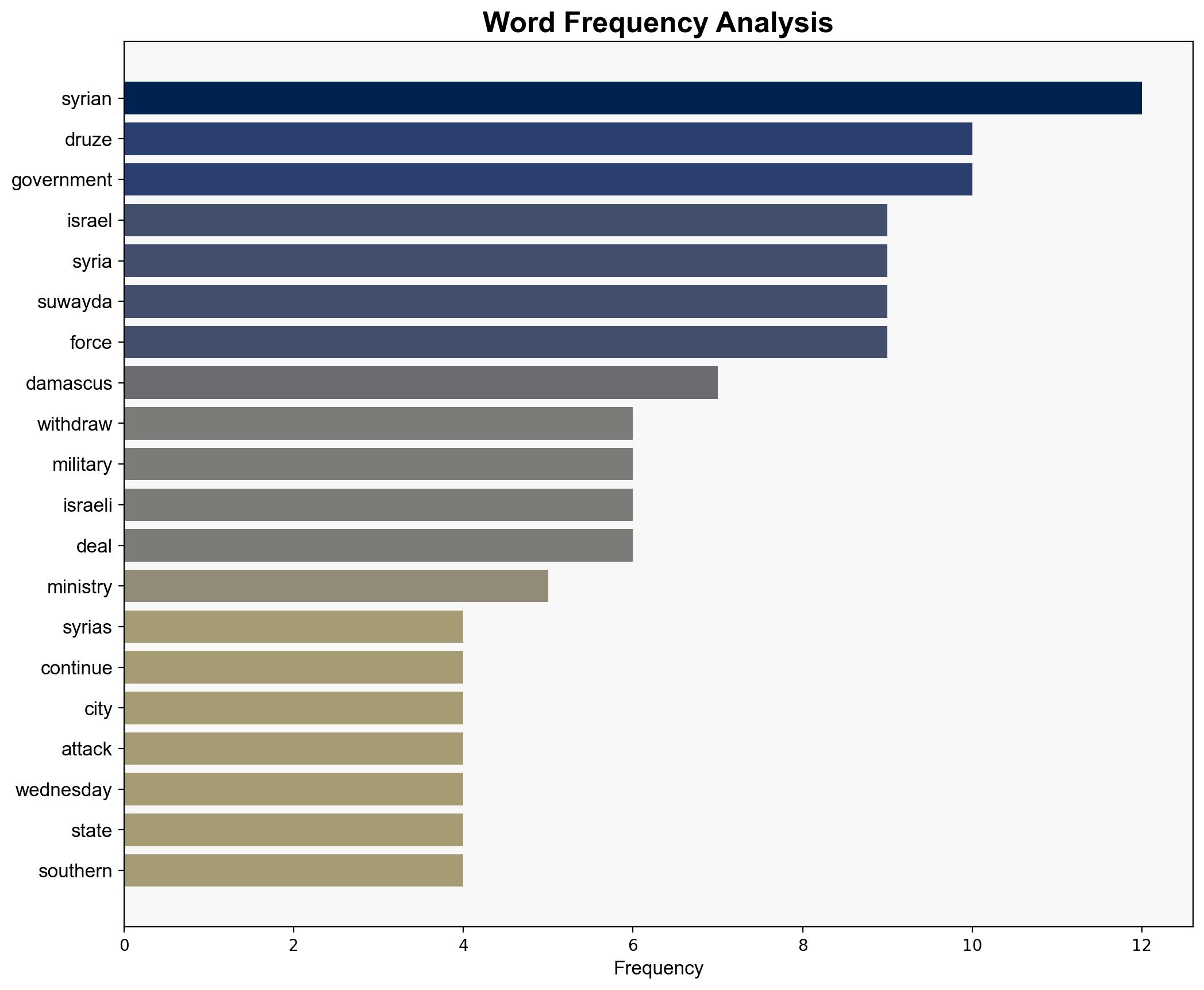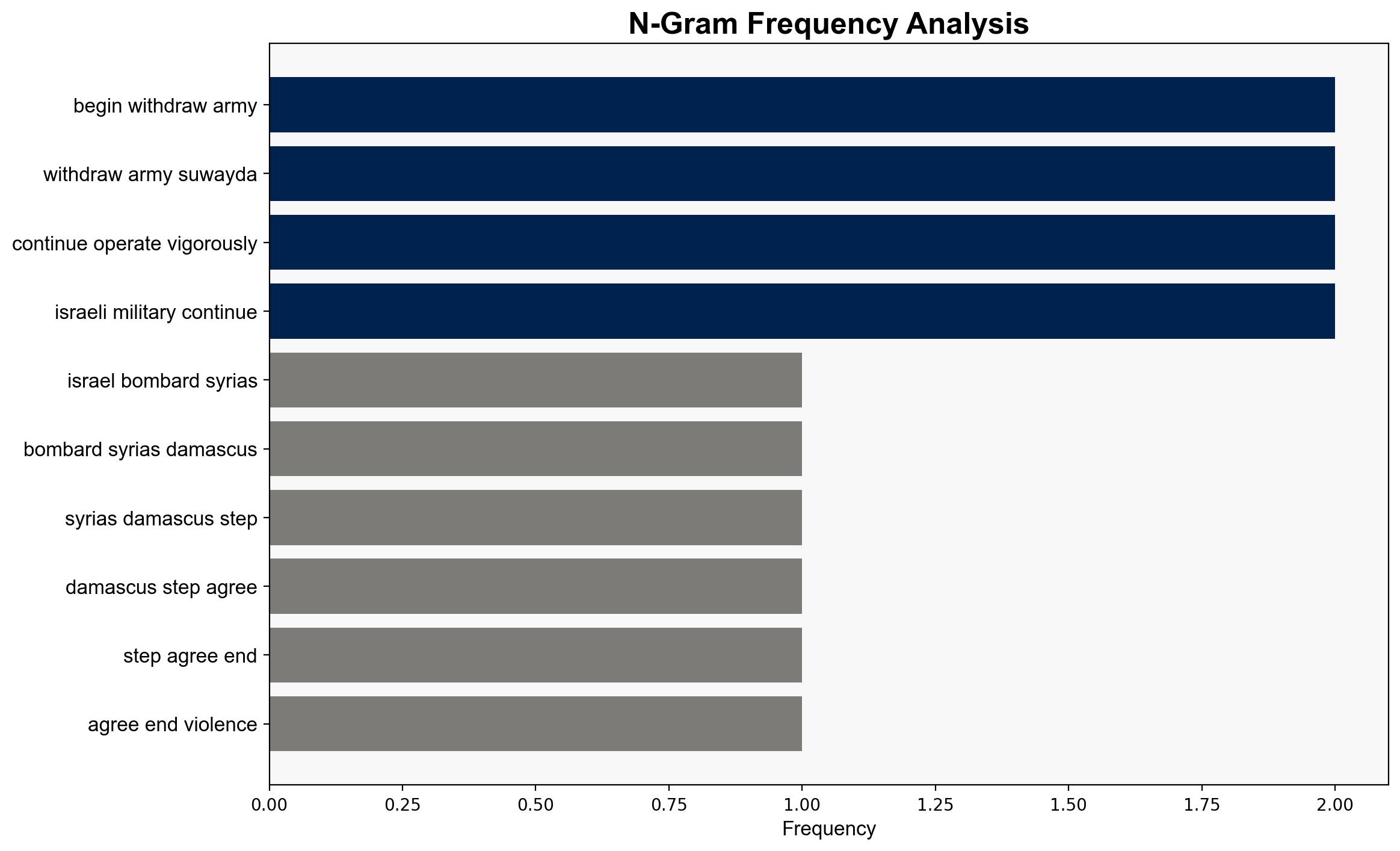Israel bombards Syrias Damascus as US says steps agreed to end violence – Al Jazeera English
Published on: 2025-07-16
Intelligence Report: Israel Bombards Syria’s Damascus as US Says Steps Agreed to End Violence – Al Jazeera English
1. BLUF (Bottom Line Up Front)
Recent military actions in Syria, including Israeli airstrikes on Damascus, represent a significant escalation in regional tensions. Concurrently, a ceasefire agreement involving US mediation aims to de-escalate violence in southern Syria, particularly in Suwayda. Key recommendations include monitoring the ceasefire’s implementation and preparing for potential regional destabilization if the agreement fails.
2. Detailed Analysis
The following structured analytic techniques have been applied to ensure methodological consistency:
Causal Layered Analysis (CLA)
– **Surface Events**: Israeli airstrikes on Damascus and ongoing violence in Suwayda.
– **Systemic Structures**: Tensions between Israeli and Syrian military forces, and internal Syrian conflicts involving Druze and Bedouin groups.
– **Worldviews**: Israeli security concerns over regional stability and protection of minority groups.
– **Myths**: Historical narratives of territorial integrity and regional dominance influencing current actions.
Cross-Impact Simulation
– **Regional Dynamics**: Potential for increased hostilities between Israel and Syria, affecting neighboring countries.
– **Economic Dependencies**: Disruption of regional trade routes and potential impact on energy markets.
Scenario Generation
– **Best Case**: Successful implementation of the ceasefire leads to a reduction in violence and stabilization of the region.
– **Worst Case**: Ceasefire collapses, leading to intensified conflict and broader regional involvement.
– **Most Likely**: Sporadic violence continues despite the ceasefire, with intermittent Israeli military actions.
3. Implications and Strategic Risks
– **Political Risks**: Failure of the ceasefire could lead to increased international involvement and pressure on regional governments.
– **Military Risks**: Escalation of military engagements could destabilize the region further.
– **Economic Risks**: Prolonged conflict may disrupt trade and economic stability in the region.
4. Recommendations and Outlook
- Monitor the implementation of the ceasefire closely and prepare contingency plans for potential breakdowns.
- Engage in diplomatic efforts to support the ceasefire and promote dialogue among conflicting parties.
- Scenario-based projections suggest maintaining readiness for both escalation and de-escalation scenarios.
5. Key Individuals and Entities
– Marco Rubio
– Zeina Khodr
– Sheikh Yousef Jarbou
– Sheikh Hikmat al-Hajari
6. Thematic Tags
national security threats, regional stability, conflict resolution, Middle East dynamics





